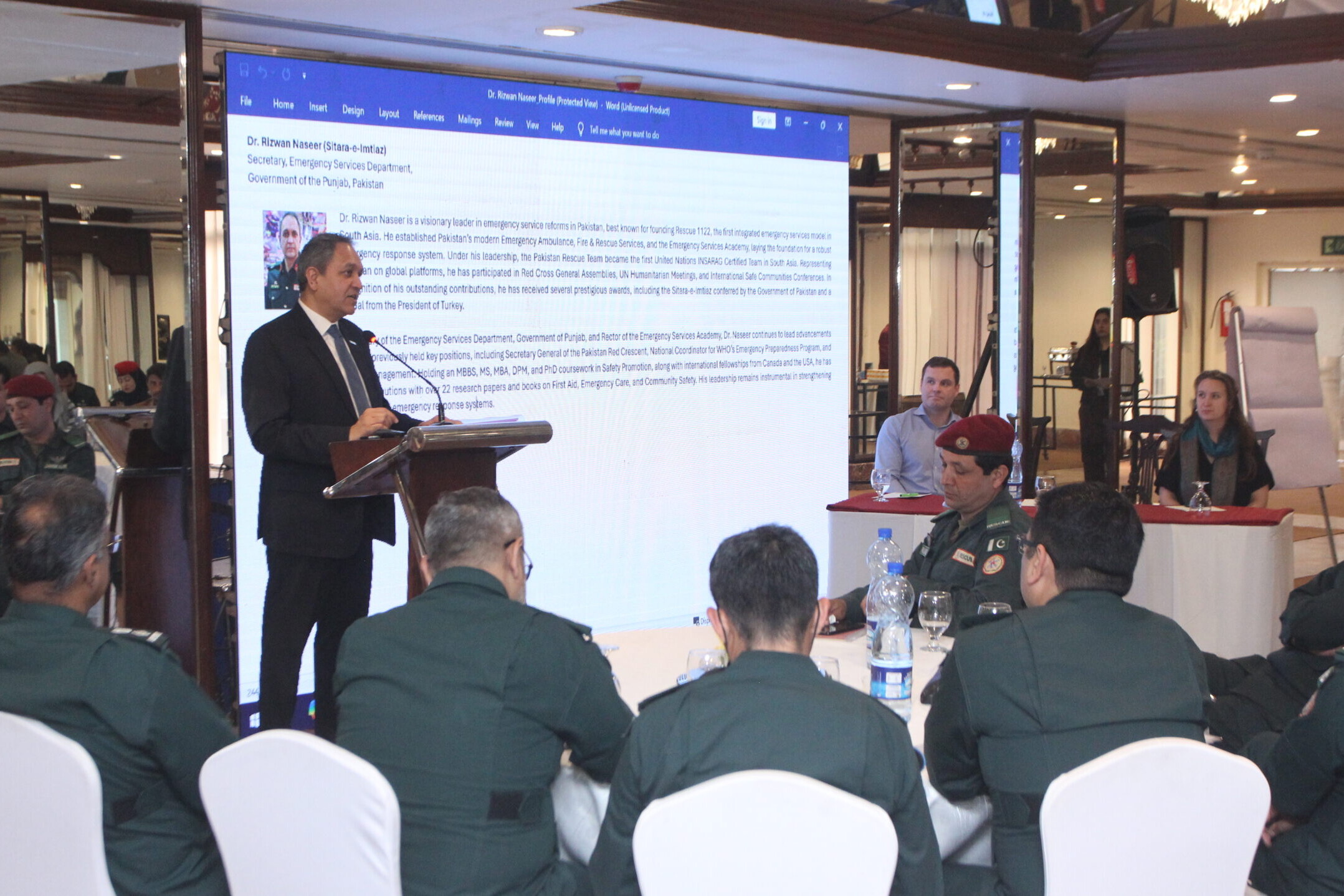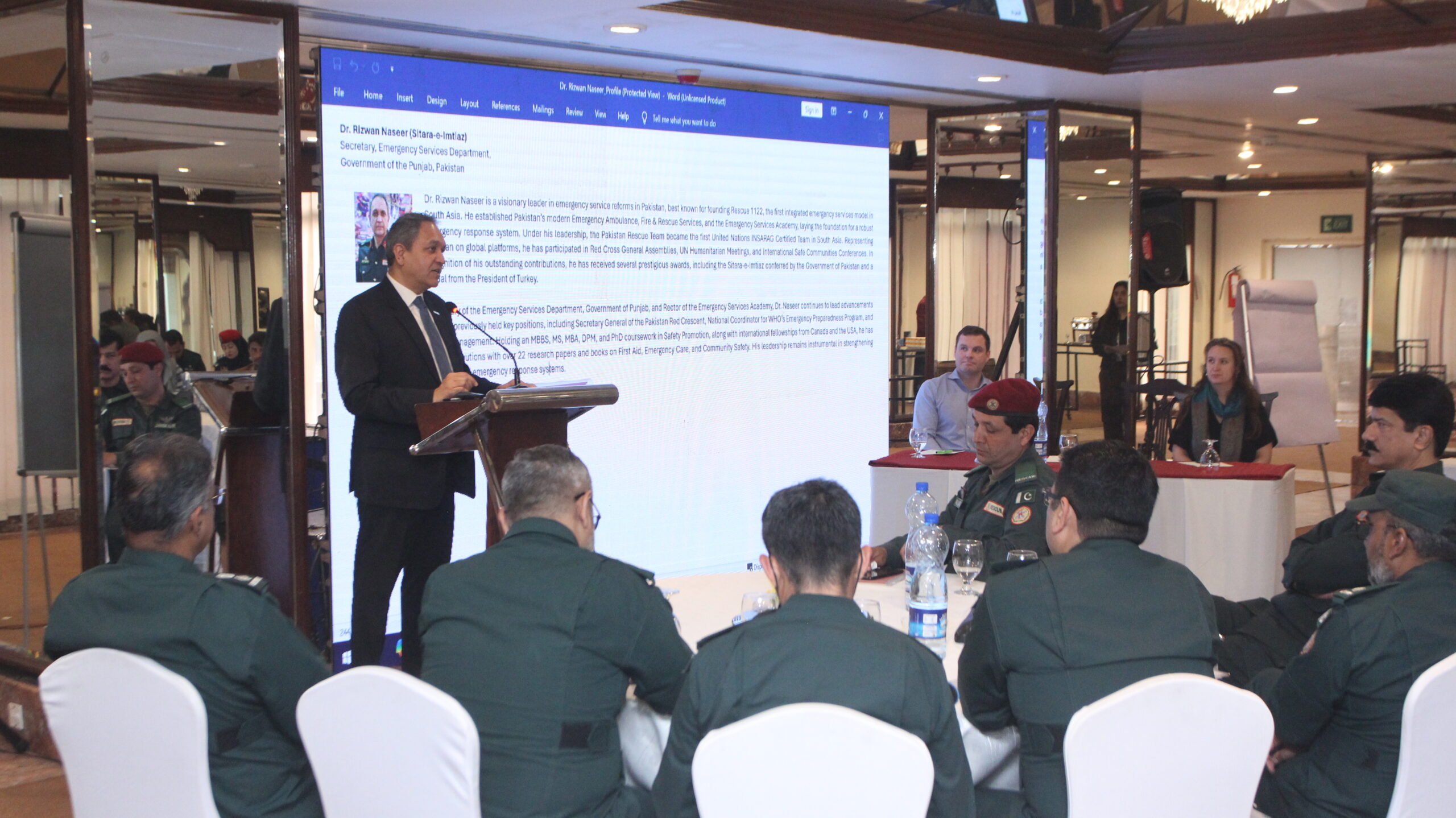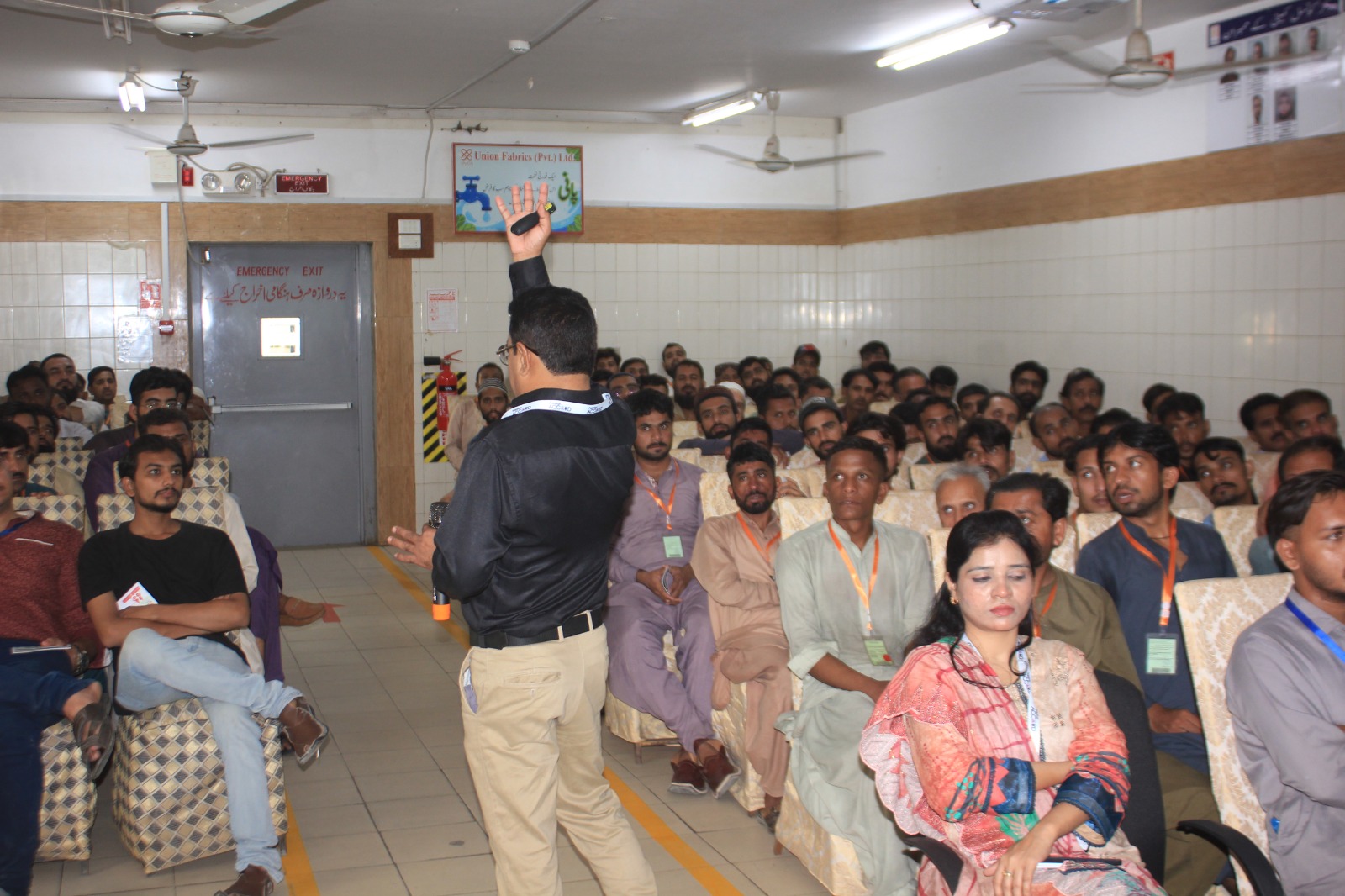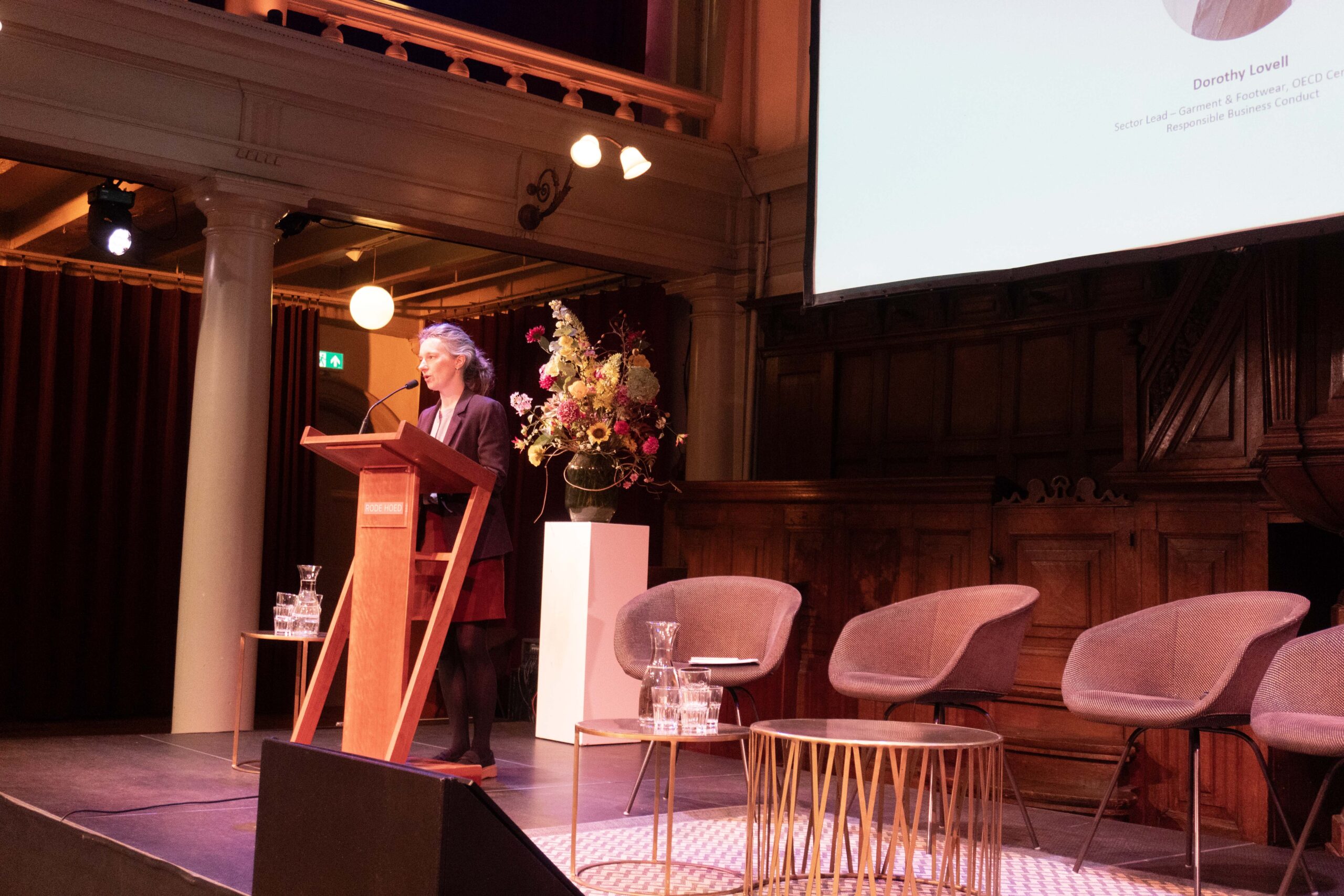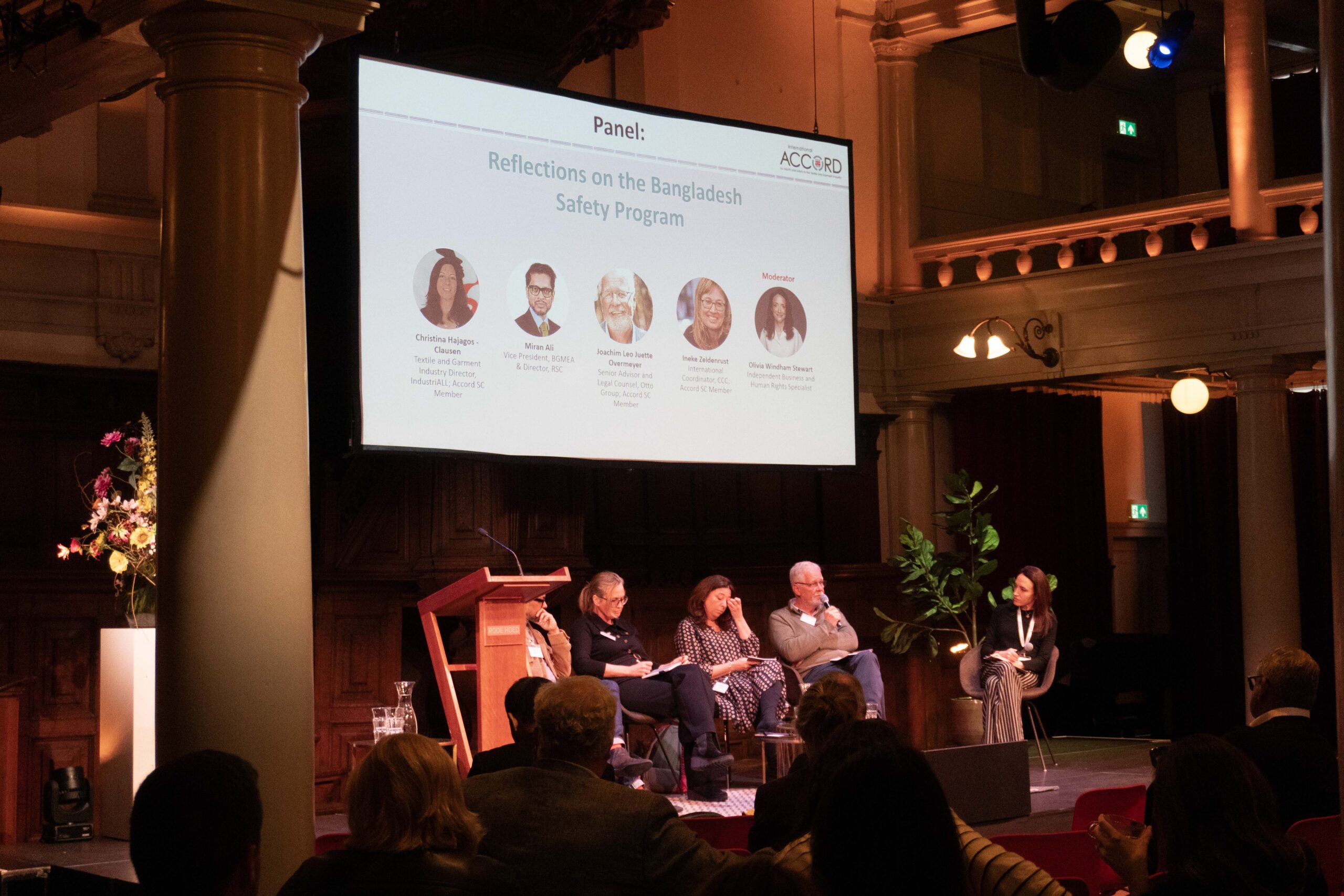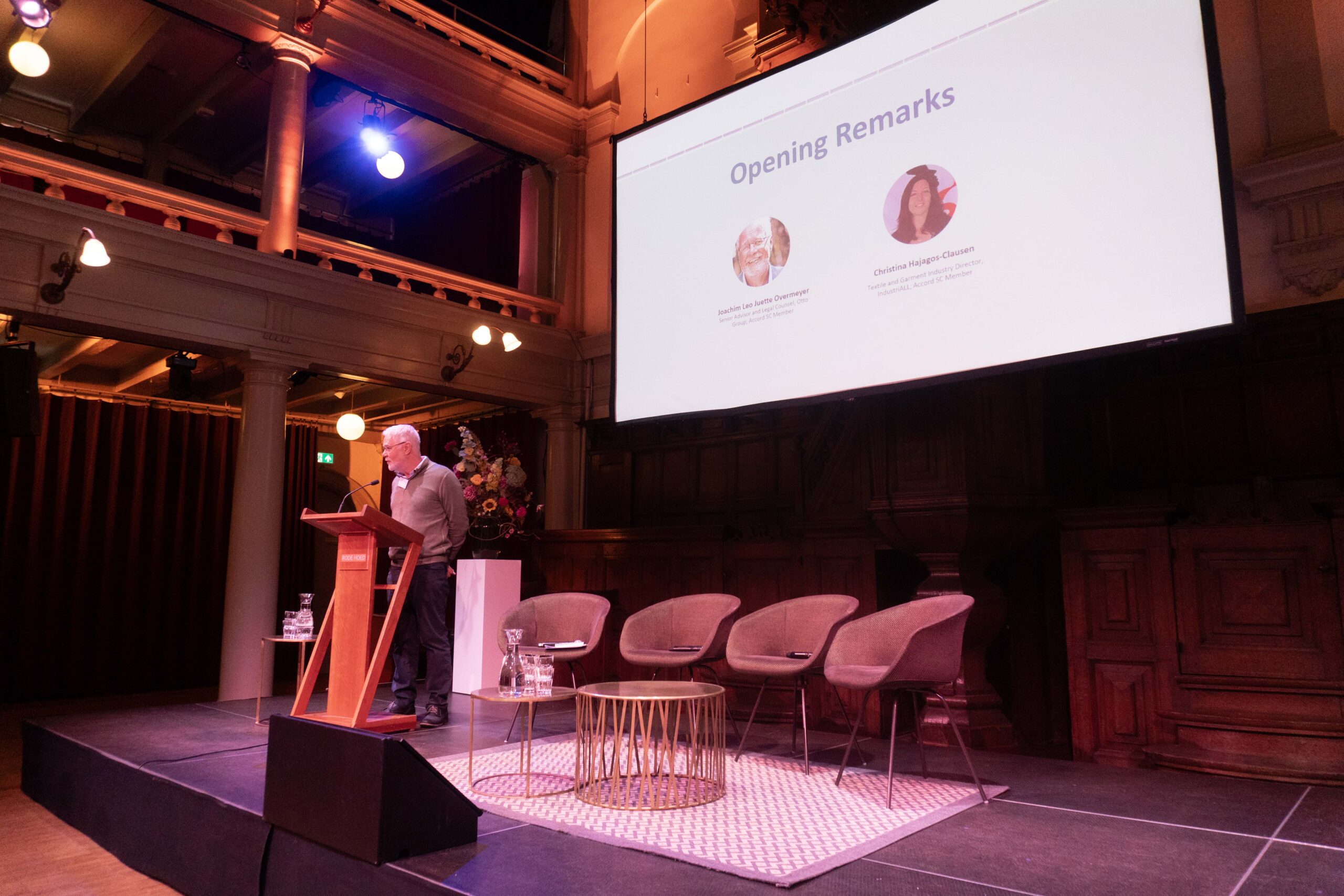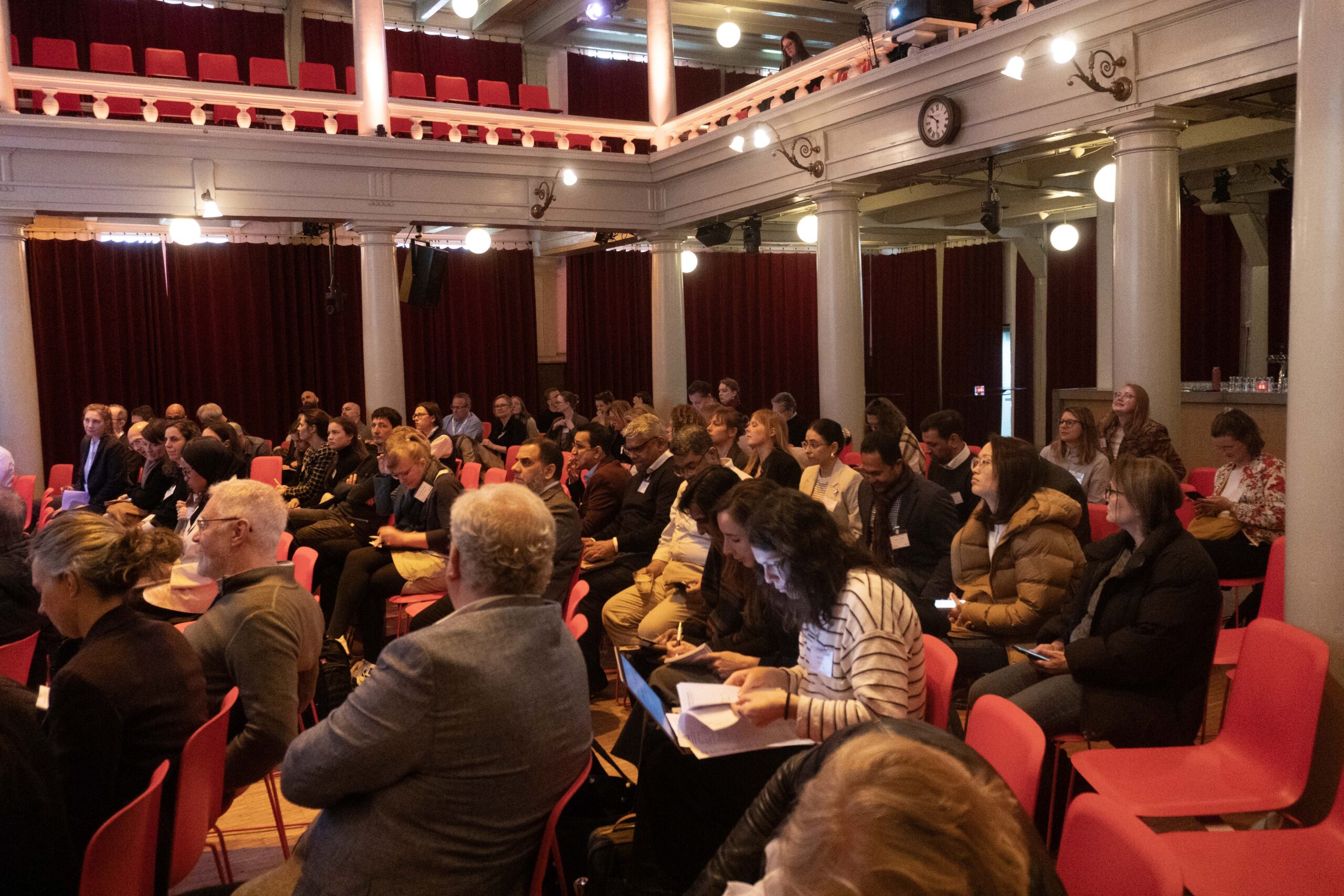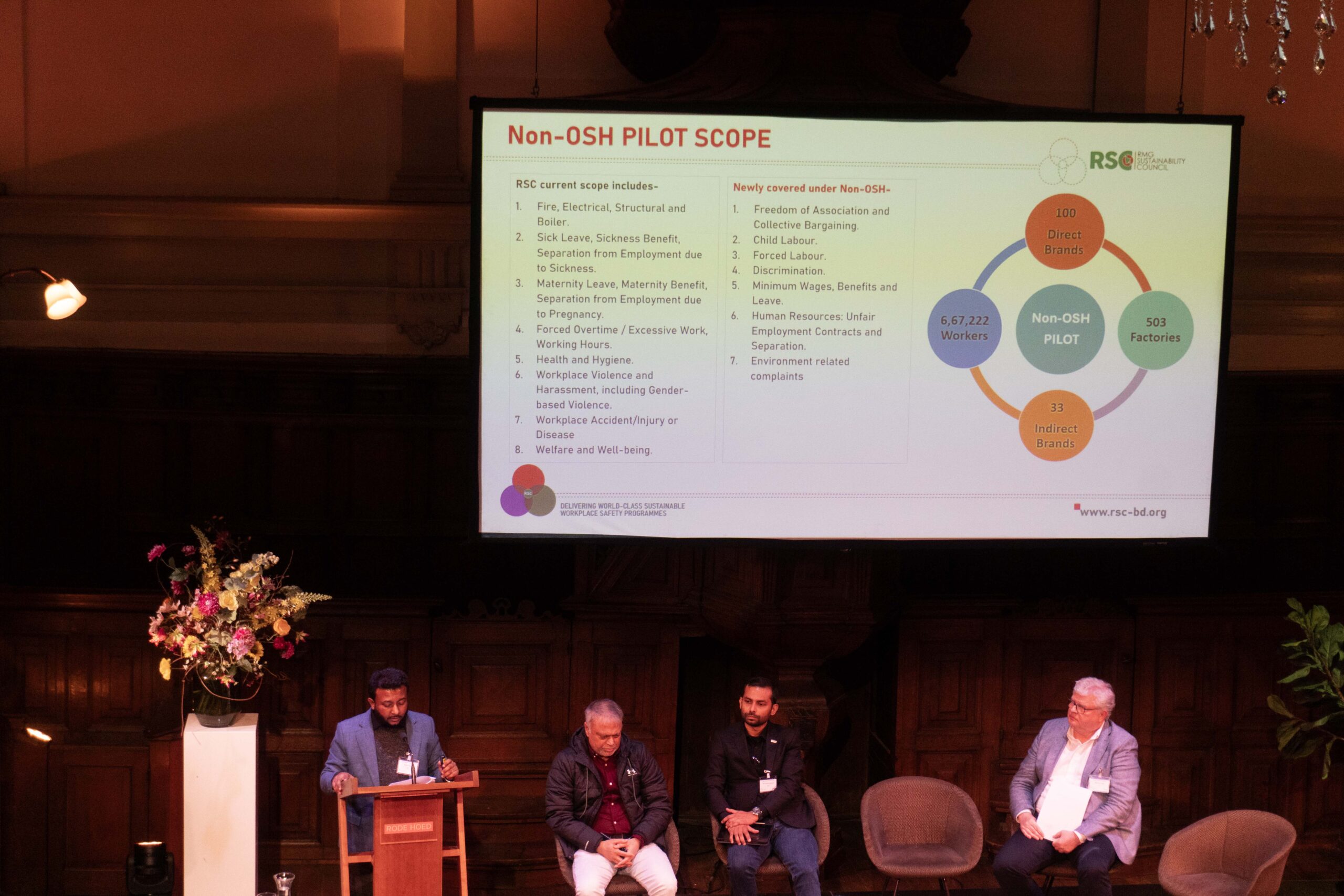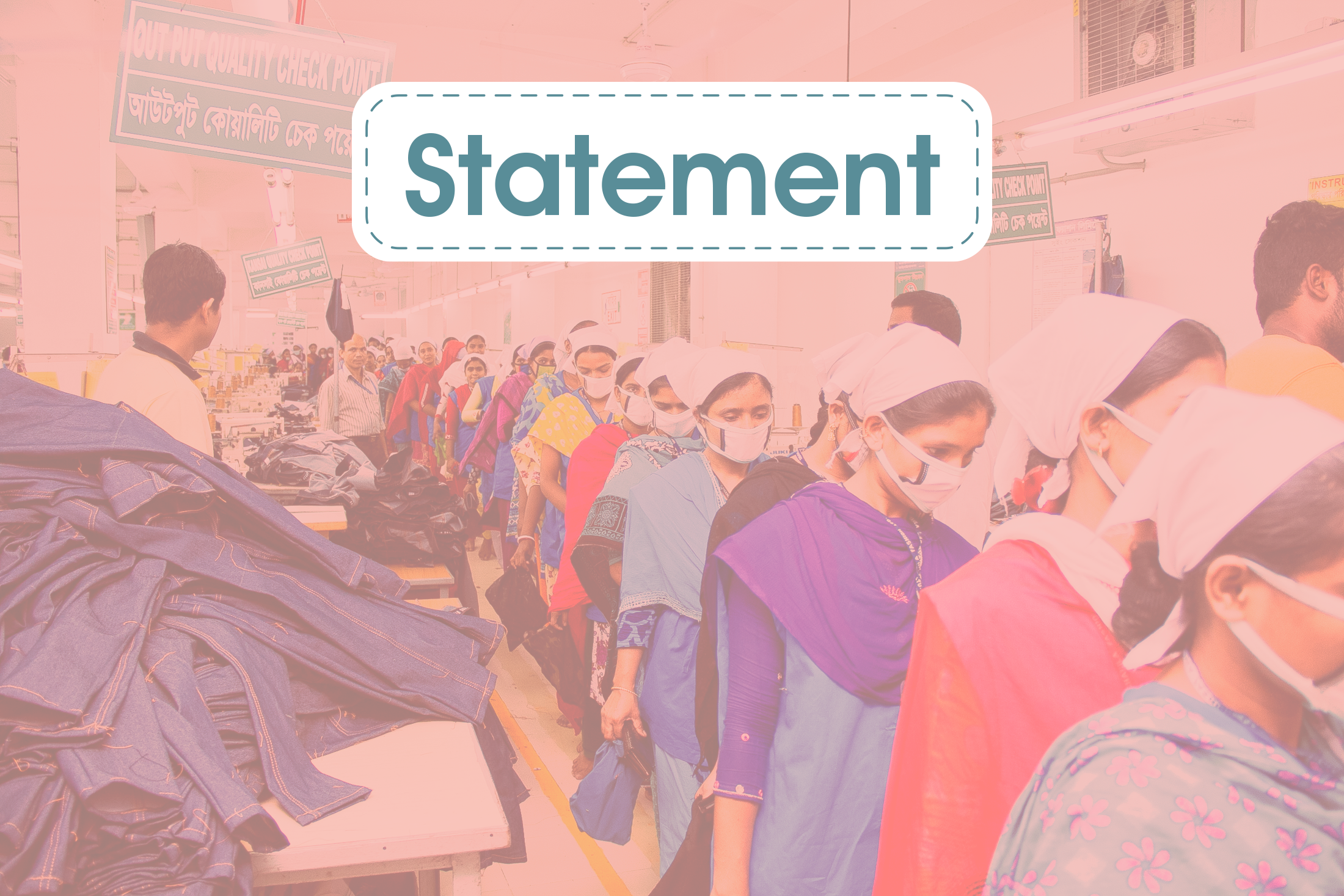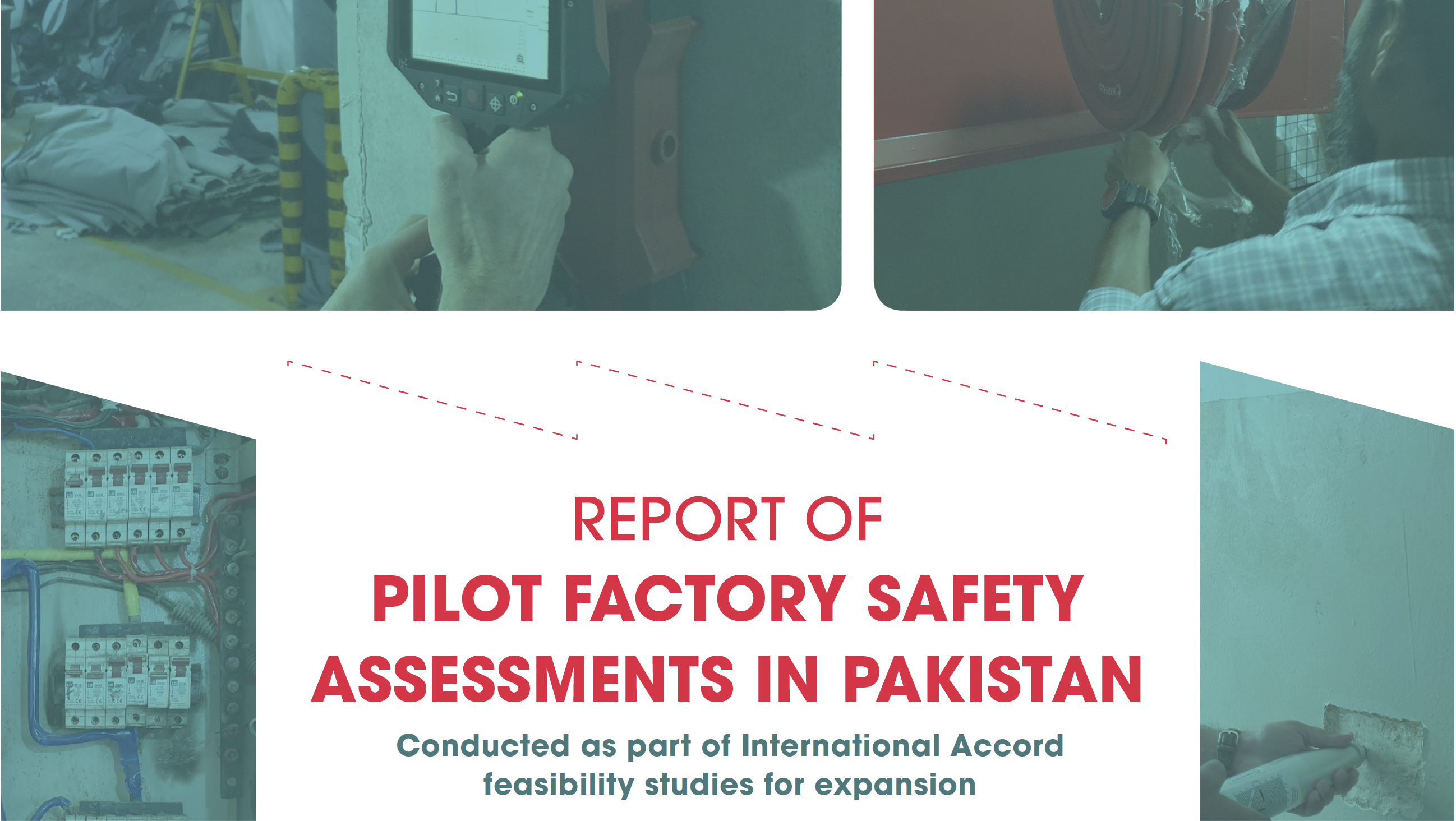International Accord Statement on the Political Situation in Bangladesh
Updates on programs in Bangladesh
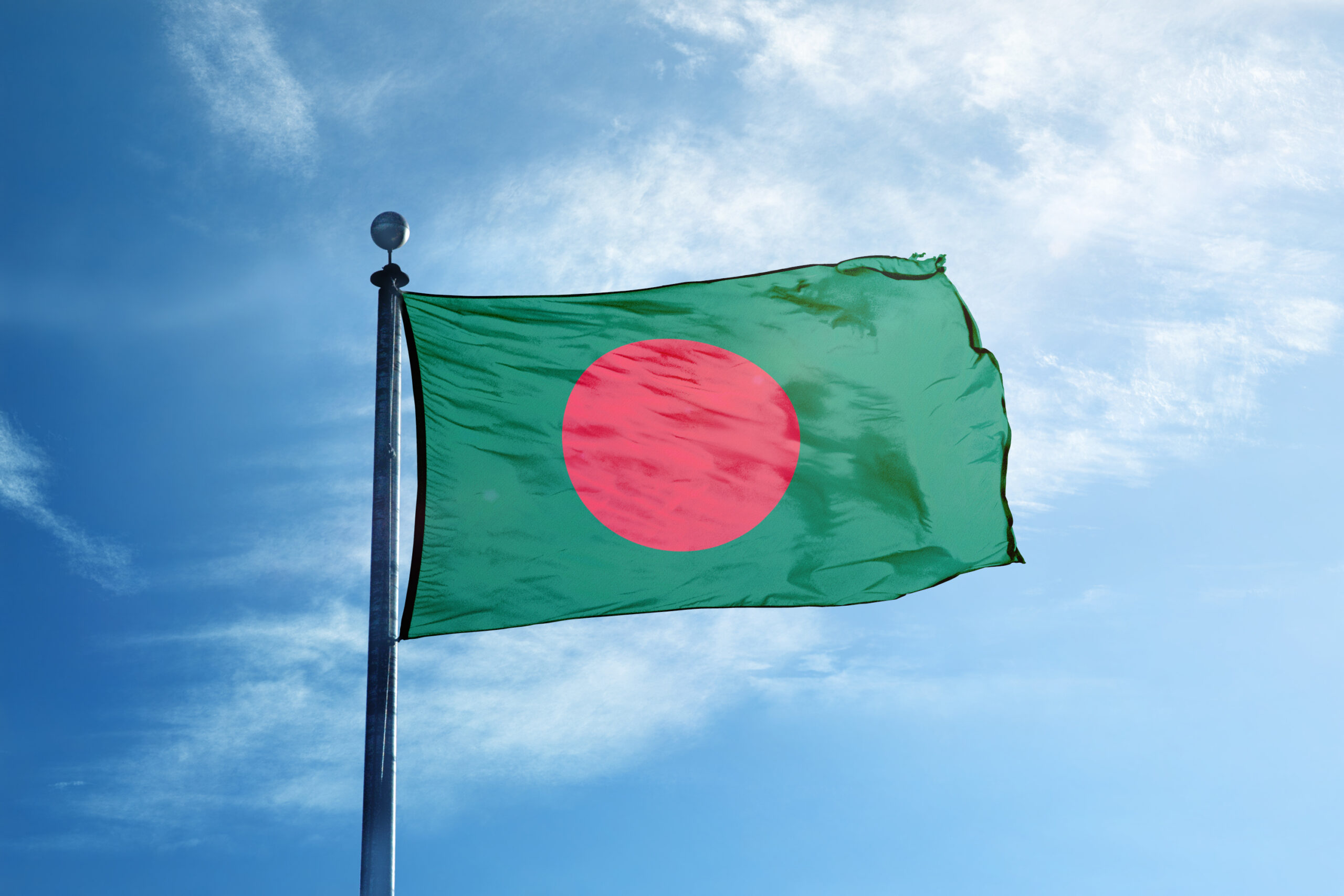
Statement
Amsterdam, 08 August 2024:
In view of the complex political situation in Bangladesh, the International Accord makes the following statement in solidarity with the people of Bangladesh.
The International Accord is deeply concerned about the breakdown in law and order and the ensuing violence in Bangladesh and its impact on the two million workers in Accord-covered factories and our partners in the RMG industry.
It is not possible at this stage to assess the impact current events will have on the RMG industry given the rapidly changing situation. In these uncertain times, the International Accord calls on all signatories of the Bangladesh Safety Agreement[1] to stand by their Bangladeshi industry partners with patience in order to support the economic future of the country.
We urge all signatories to:
- Uphold the letter and the spirit of the commitments made to maintain a long-term sourcing relationship with Bangladesh.
- Actively engage with your suppliers to work together and address challenges related to production targets, order deliveries and the safety and health of workers.
- Continue supporting the RMG Sustainability Council (RSC) throughout this challenging period.
In addition, we have also learnt of, as yet unverified, reports of vandalism and fires at some RMG factories in Bangladesh. Any safety incidents at covered factories will be investigated by the RSC in accordance with their operating procedures, to the extent possible under the circumstances.
The International Accord will work to the best of its ability, together with colleagues from the RSC, Accord brands, trade unions, witness signatories and industry, to provide ongoing support and ensure that commitments made on safety and health protections are upheld. These include upholding the right to refuse unsafe work, maintaining regular income during any period a factory is closed for safety reasons, and avoiding excessive working hours to make up for production delays.
The International Accord hopes that Bangladesh quickly returns to a state of political and social stability and that we can continue our collective journey towards a safe and sustainable RMG industry in Bangladesh.
Our thoughts and prayers are with the people of Bangladesh.
[1] The Bangladesh Safety Agreement is a Country-Specific Safety Program that is an addendum to the International Accord framework agreement and has been signed by 201 garment brands and retailers.
END
For more information, contact:
- media@internationalaccord.org
- Mini Dixit, Communications Advisor: mini.dixit@internationalaccord.org
Related updates
May 28, 2025
The International Accord’s All Signatory Meeting was dedicated to insights on the progress and operations of the Accord’s country program in Bangladesh and Pakistan, alongside exploring opportunities to expand the Accord’s scope and impact.
March 10, 2025
This briefing provides updates on the number of signatory brands and covered factories, the rollout of Workplace Programs, and recent events organised by the Pakistan Accord team.
February 19, 2025
The Pakistan Accord team recently organised a series of capacity building workshops for government officials in the Sindh and Punjab provinces.
May 28, 2025
The International Accord’s All Signatory Meeting was dedicated to insights on the progress and operations of the Accord’s country program in Bangladesh and Pakistan, alongside exploring opportunities to expand the Accord’s scope and impact.
February 19, 2025
The Pakistan Accord team recently organised a series of capacity building workshops for government officials in the Sindh and Punjab provinces.
November 28, 2024
On 26 and 27 November 2024 the Pakistan Accord conducted its inaugural safety training meeting in Pakistan. The meeting was attended by all employees of the factory.
Day 1 Recap: Accord All Signatory Meeting 2024
Updates on programs in Bangladesh
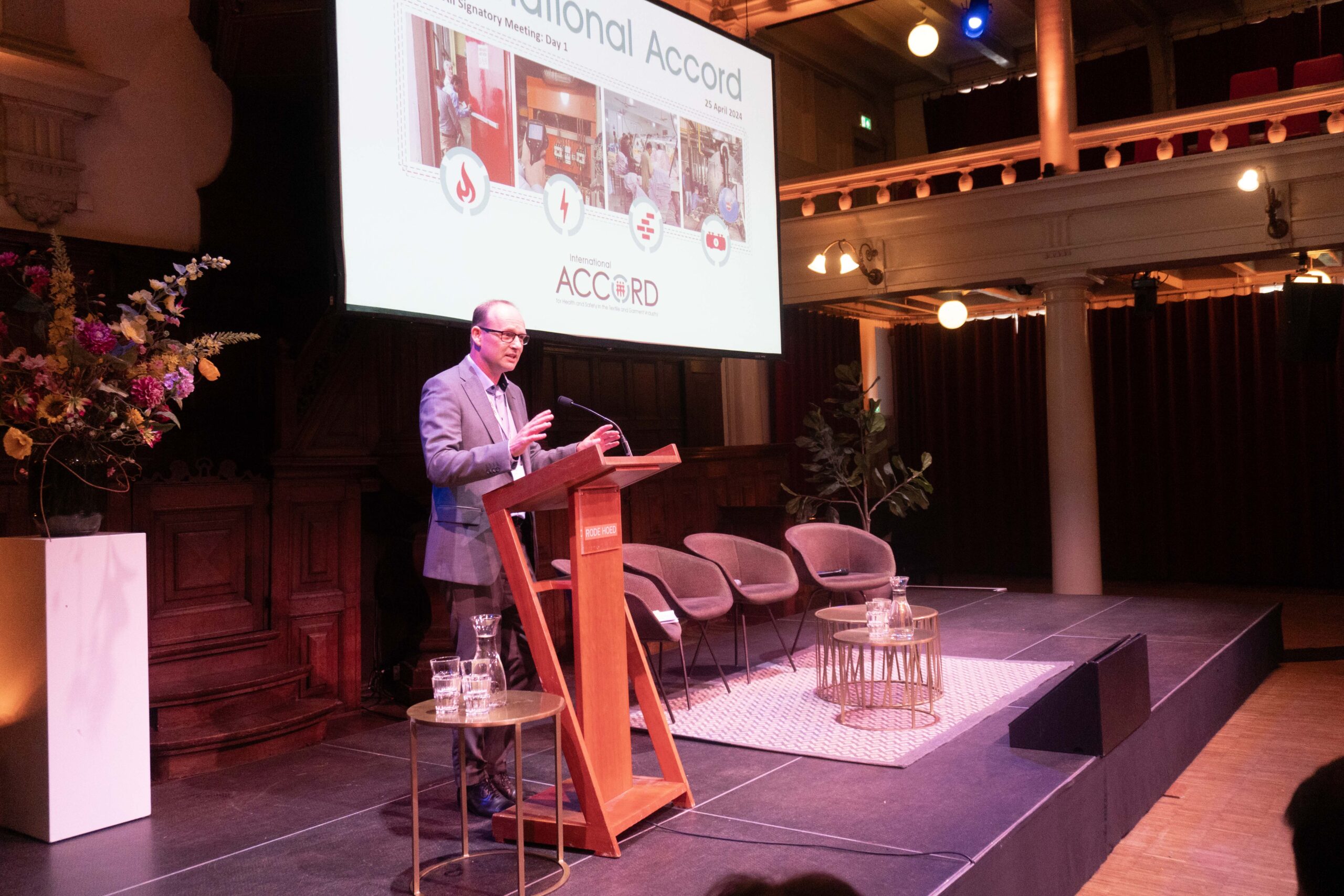
The International Accord held its All Signatory Meeting 2024 on the 25 and 26 of April 2024 at the Rode Hoed in Amsterdam, the Netherlands. The purpose of the event was to update participants about the key developments on the operations and implementation of the Accord’s Country-Specific Safety Programs (CSSPs) in Bangladesh and Pakistan.
25 April marked the first day of the All-Signatory Meeting in Amsterdam, where our brand, trade union, and NGO signatories came together to discuss the progress and way ahead on the International Accord and the Bangladesh Safety Agreement.
Set against the background of the 11th anniversary of the Rana Plaza collapse on 24 April, the day started with remarks by Christina Hajagos-Clausen (IndustriALL Global Union) and Joachim Juette-Overmeyer (Otto Group).
Dorothy Lovell (Sector Lead – Garment & Footwear, OECD Centre for Responsible Business Conduct), in her keynote address, underscored the Accord’s role as a flagship initiative that translates the OECD’s Due Diligence Guidance into action. She described it as a tool for accountability and an example of how due diligence creates impactful change by preventing harm, improving lives, and ensuring business continuity. Lovell added:
“…when brands jointly invest in the conditions for decent work in their supply chain, there are results, and those results are good for workers and business.”
The day included updates on the International Accord’s operations by Joris Oldenziel and Koen Oosterom.
Veronique Camerer and Kristine Drew conducted a session that encouraged brands to share their perspectives and insights on the steps they take to fulfill their obligations on financing remediation and the Accord’s workplace programs.
The RMG Sustainability Council (RSC)’s Abdul Haque, Shah Sefat Uddin Ahmed and Md Hassan Nawazis shared a comprehensive presentation on the remediation progress in Bangladesh, highlighting key developments such as the expansion of the complaints mechanism and the envisioned environmental program.
The final session comprised reflections on the Bangladesh Safety Program by Miran Ali (BGMEA), Ineke Zeldenrust (Clean Clothes Campaign), Christina Hajagos-Clausen, and Joachim Juette-Overmeyer, followed by concluding remarks delivered by PVH Corp.’s Michael Bride.
We thank all attendees for their participation, and Olivia Windham Stewart for moderating the sessions. We are also grateful to our venue partners, the Amerpodia team for their organisational support on this event.
For more information, contact:
- media@internationalaccord.org
- Mini Dixit, Communications Advisor: mini.dixit@internationalaccord.org
Related updates
May 28, 2025
The International Accord’s All Signatory Meeting was dedicated to insights on the progress and operations of the Accord’s country program in Bangladesh and Pakistan, alongside exploring opportunities to expand the Accord’s scope and impact.
March 10, 2025
This briefing provides updates on the number of signatory brands and covered factories, the rollout of Workplace Programs, and recent events organised by the Pakistan Accord team.
February 19, 2025
The Pakistan Accord team recently organised a series of capacity building workshops for government officials in the Sindh and Punjab provinces.
May 28, 2025
The International Accord’s All Signatory Meeting was dedicated to insights on the progress and operations of the Accord’s country program in Bangladesh and Pakistan, alongside exploring opportunities to expand the Accord’s scope and impact.
February 19, 2025
The Pakistan Accord team recently organised a series of capacity building workshops for government officials in the Sindh and Punjab provinces.
November 28, 2024
On 26 and 27 November 2024 the Pakistan Accord conducted its inaugural safety training meeting in Pakistan. The meeting was attended by all employees of the factory.
11 years since the Rana Plaza collapse in Bangladesh
Updates on programs in Bangladesh
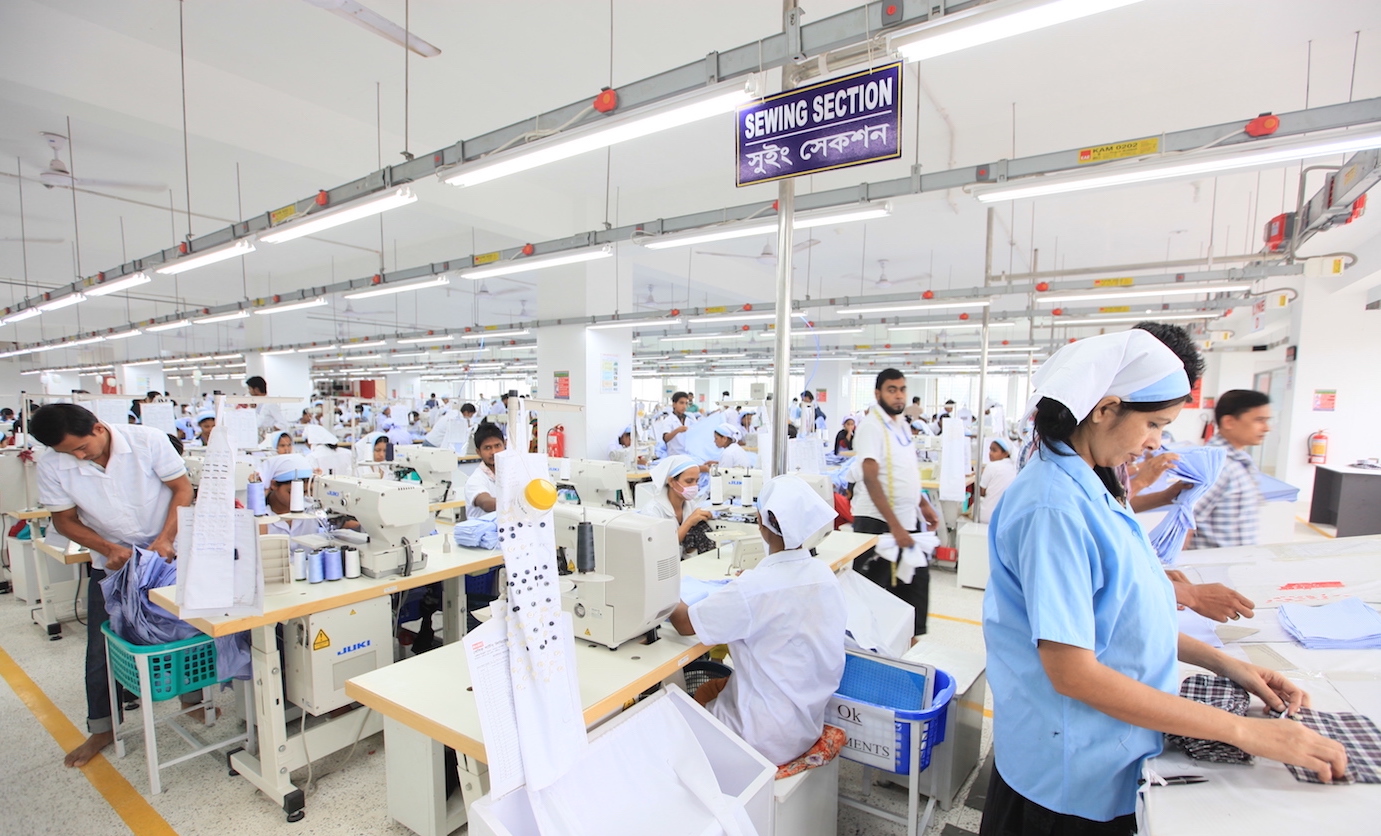
Today marks the 11th anniversary of the tragic collapse of the Rana Plaza building in Dhaka, Bangladesh, which claimed the lives of over 1,100 garment workers and left thousands critically injured. On this solemn anniversary, the Accord pays tribute to the victims, the survivors, and those enduring the impact of one of the most devastating workplace disasters in modern history.
Alongside our signatories and stakeholders, the Accord remains committed to ensuring that garment factory workers are safeguarded with a safe and healthy work environment as a fundamental principle and right at work.
We urge more brands to join us in this effort by signing the Accord and putting worker safety at the core of their garment supply chains.
For more information, contact:
- media@internationalaccord.org
- Mini Dixit, Communications Officer: mini.dixit@internationalaccord.org
Related updates
May 28, 2025
The International Accord’s All Signatory Meeting was dedicated to insights on the progress and operations of the Accord’s country program in Bangladesh and Pakistan, alongside exploring opportunities to expand the Accord’s scope and impact.
March 10, 2025
This briefing provides updates on the number of signatory brands and covered factories, the rollout of Workplace Programs, and recent events organised by the Pakistan Accord team.
February 19, 2025
The Pakistan Accord team recently organised a series of capacity building workshops for government officials in the Sindh and Punjab provinces.
May 28, 2025
The International Accord’s All Signatory Meeting was dedicated to insights on the progress and operations of the Accord’s country program in Bangladesh and Pakistan, alongside exploring opportunities to expand the Accord’s scope and impact.
February 19, 2025
The Pakistan Accord team recently organised a series of capacity building workshops for government officials in the Sindh and Punjab provinces.
November 28, 2024
On 26 and 27 November 2024 the Pakistan Accord conducted its inaugural safety training meeting in Pakistan. The meeting was attended by all employees of the factory.
Over 100 brands sign the Bangladesh Safety Agreement
Updates on programs in Bangladesh
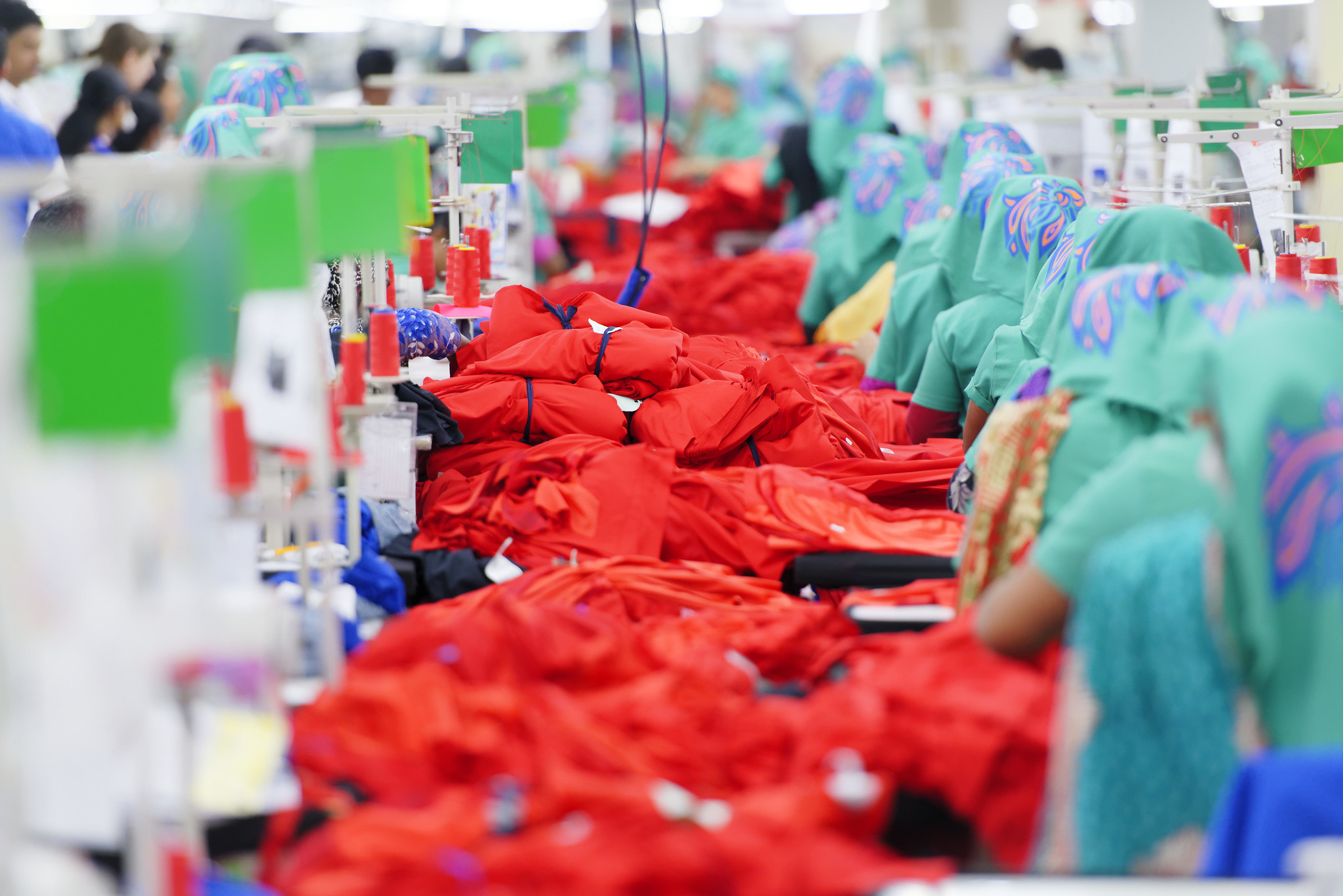
A total of 102 global brands and retailers have so far signed the Bangladesh Safety Agreement with Fast Retailing Co. Ltd, River Island and Triumph & Sloggi, among the latest signatories.
The Bangladesh Safety Agreement took effect as an Addendum to the renewed International Accord on 1 November 2023. Signatory parties to Bangladesh Safety Program commit to the principles enshrined in the 2023 International Accord, and as stipulated in the 2013, 2018 and the 2021 Accord agreements on Fire and Building Safety in Bangladesh.
The inspections and remediation program, safety committee and safety training program, complaints mechanism, and reporting and disclosure requirements of the Accord are implemented in Bangladesh by the RMG Sustainability Council (RSC), which was established in June 2020.
We extend an invitation to all garment and textile brands sourcing from Bangladesh to sign the Bangladesh Safety Agreement and contribute to enhancing health and safety within the textile and garment industry.
Resources:
Related updates
May 28, 2025
The International Accord’s All Signatory Meeting was dedicated to insights on the progress and operations of the Accord’s country program in Bangladesh and Pakistan, alongside exploring opportunities to expand the Accord’s scope and impact.
March 10, 2025
This briefing provides updates on the number of signatory brands and covered factories, the rollout of Workplace Programs, and recent events organised by the Pakistan Accord team.
February 19, 2025
The Pakistan Accord team recently organised a series of capacity building workshops for government officials in the Sindh and Punjab provinces.
May 28, 2025
The International Accord’s All Signatory Meeting was dedicated to insights on the progress and operations of the Accord’s country program in Bangladesh and Pakistan, alongside exploring opportunities to expand the Accord’s scope and impact.
February 19, 2025
The Pakistan Accord team recently organised a series of capacity building workshops for government officials in the Sindh and Punjab provinces.
November 28, 2024
On 26 and 27 November 2024 the Pakistan Accord conducted its inaugural safety training meeting in Pakistan. The meeting was attended by all employees of the factory.
Agreement on International Accord Framework for Health and Safety Programs
Global brands and trade unions have renewed the International Accord to enhance health and safety in supply chains in Bangladesh, Pakistan, and other countries in the future.
Statement
Amsterdam, 6 November 2023 [updated on 20 November]:
Negotiations between representatives of international textile retailers and the global trade union signatories to the International Accord on Health and Safety in the Textile and Garment Industry have culminated in an agreement that reaffirms their commitment to enhancing health and safety throughout the supply chains of the brand signatories.
Brands and trade unions have renewed their commitments for an extended three-year term, with an automatic renewal of another three years making it the longest Accord commitment to date.
This new iteration of the International Accord takes effect on 1 November 2023.
This enduring commitment reflects the conviction of the brand and trade union signatories in the Accord’s impact on workplace health and safety through independent factory inspections, remediation, safety training, and an effective worker complaints mechanism.
The renewed International Accord is a legally binding framework agreement under which Country-Specific Safety Programs (CSSPs) will be implemented in Pakistan and through the RMG Sustainability Council (RSC) in Bangladesh, with the provision to develop future health and safety programs in other major garment-producing countries based on feasibility and expansion criteria.
Key new features of the International Accord framework include:
- An international framework:
(a) committing to expanding the health and safety work progressively in the coming years to other countries, based on feasibility studies and successful progress made in the existing country programs;
(b) considering a future expansion of the scope of the worker complaints mechanism beyond health and safety in CSSPs; and
(c) outlining the key signatory obligations and principles upon which country programs will be built. The details of the country programs will be outlined in Addendums to the International Accord agreement.- Participating brands shall sign both the International Accord framework agreement and the relevant CSSP agreements they choose to participate in.
- The Pakistan Accord for Health and Safety in the Textile and Garment Industry (Pakistan Accord), which was signed in January 2023, will continue as an Addendum to the International Accord.
Negotiations for the new Bangladesh CSSP agreement concluded on 6 November. This agreement will continue the signatories’ commitments to the health and safety program in Bangladesh through the RSC as stipulated in a separate Bangladesh Safety Agreement available to read here.
The new International Accord will continue to build on the strong principles and approach that made the Accord effective. This includes factory inspections and remediation, safety training, worker awareness programs, a credible independent worker complaints mechanism, respect for freedom of association, independent administration and implementation, a high level of transparency, and provisions ensuring financially feasible remediation.
The International Accord Secretariat will support signatories in implementing the agreement and monitor signatory compliance with the International Accord agreement and its country Addendums.
Brands and retailers will be invited to sign the International Accord and the Bangladesh agreement from 20 November onwards. Brands sourcing from Pakistan that have not signed the Pakistan Accord yet are encouraged to sign as soon as possible.
The Accord encourages all garment and textile companies to sign this renewed framework agreement and join our collective goal of safe and sustainable textile and garment industry.
The International Accord Secretariat will announce the initial signatories to the International Accord and the Bangladesh program in the first week of December 2023.
Download the full text of the International Accord here.
For more information, contact:
- media@internationalaccord.org
- Mini Dixit, Communications Advisor: mini.dixit@internationalaccord.org
Related updates
May 28, 2025
The International Accord’s All Signatory Meeting was dedicated to insights on the progress and operations of the Accord’s country program in Bangladesh and Pakistan, alongside exploring opportunities to expand the Accord’s scope and impact.
March 10, 2025
This briefing provides updates on the number of signatory brands and covered factories, the rollout of Workplace Programs, and recent events organised by the Pakistan Accord team.
February 19, 2025
The Pakistan Accord team recently organised a series of capacity building workshops for government officials in the Sindh and Punjab provinces.
May 28, 2025
The International Accord’s All Signatory Meeting was dedicated to insights on the progress and operations of the Accord’s country program in Bangladesh and Pakistan, alongside exploring opportunities to expand the Accord’s scope and impact.
February 19, 2025
The Pakistan Accord team recently organised a series of capacity building workshops for government officials in the Sindh and Punjab provinces.
November 28, 2024
On 26 and 27 November 2024 the Pakistan Accord conducted its inaugural safety training meeting in Pakistan. The meeting was attended by all employees of the factory.
Report of the Accord pilot safety assessments in Pakistan
The pilot safety assessments were initiated in September 2022 to establish an effective safety inspection and remediation program in Pakistan.
The pilot safety assessments were initiated in September 2022 to establish an effective safety inspection and remediation program in Pakistan.
The International Accord is pleased to announce the publication of a report on the pilot safety assessments conducted with factories in Pakistan over the last 8 months.
The International Accord pilot was initiated in September 2022 with the goal of understanding the key considerations for establishing an effective safety inspection and remediation program with garment and textile suppliers in Pakistan. The main objectives of the pilot were:
- To gain first-hand information on safety conditions in different types of factories.
- To identify the common remediation challenges where support (technical, financial) may be needed.
- To do preliminary assessment of engineering capacity to conduct safety inspections and support safety remediation in the industry.
The pilot activities included 1-day safety assessments at 7 garment and textile factories in Karachi and Lahore, meetings with a range of engineering and fire safety experts in Pakistan, and follow-up discussions on remediation feasibility with participating factories.
The report provides an aggregated summary of findings from the safety assessments, giving insight to the potential safety improvements needed in the wider industry. Key areas where measures are needed to ensure minimum life safety standards include:
- Structural design checks & preparation of accurate building drawings.
- Fire-separated construction and sufficient protected exit routes to allow safe egress in case of fire.
- Proper installation & testing of fire alarm & fire suppression systems to ensure full functioning in case of emergency.
- Electrical system design and installation conforming with code requirements, as well as maintenance & cleaning regimes to prevent electrical hazards.
- Maintenance and repair of boilers and their associated systems to mitigate the risk of serious accidents.
Factories in the pilot gave feedback that most of the remediation would be feasible and they reported some remediation already underway soon after receiving the reports. However, factories indicated they will need technical guidance on some safety measures, such as correct design of fire systems, and potentially financial support to procure certain equipment.
A consultation with engineering experts in Pakistan found that there is sufficient code knowledge in the engineering community in Pakistan to begin working with factories to remediate safety issues. Nevertheless, clear guidance will be needed on how to remediate existing buildings, which calls for particular experience.
The pilot has given some insight to safety conditions in the garment and textile industry in Pakistan and where suppliers may need most support to meet and maintain safety standards. In addition, it has given the Accord more indication of how to work with various stakeholders to develop an effective safety inspection and remediation program for all factories supplying to Accord signatory companies.
The Accord team is grateful to the suppliers who volunteered to participate in this pilot. We appreciate their enthusiasm to work with the Accord, openness to rigorous safety assessments throughout their facilities, and for providing detailed feedback on remediation progress and challenges, as well as other valuable insights for future Accord safety programs.
Resources:
Related updates
May 28, 2025
The International Accord’s All Signatory Meeting was dedicated to insights on the progress and operations of the Accord’s country program in Bangladesh and Pakistan, alongside exploring opportunities to expand the Accord’s scope and impact.
March 10, 2025
This briefing provides updates on the number of signatory brands and covered factories, the rollout of Workplace Programs, and recent events organised by the Pakistan Accord team.
February 19, 2025
The Pakistan Accord team recently organised a series of capacity building workshops for government officials in the Sindh and Punjab provinces.
May 28, 2025
The International Accord’s All Signatory Meeting was dedicated to insights on the progress and operations of the Accord’s country program in Bangladesh and Pakistan, alongside exploring opportunities to expand the Accord’s scope and impact.
February 19, 2025
The Pakistan Accord team recently organised a series of capacity building workshops for government officials in the Sindh and Punjab provinces.
November 28, 2024
On 26 and 27 November 2024 the Pakistan Accord conducted its inaugural safety training meeting in Pakistan. The meeting was attended by all employees of the factory.
International Accord at the Global Fashion Summit 2023 in Copenhagen
Updates on programs in Bangladesh
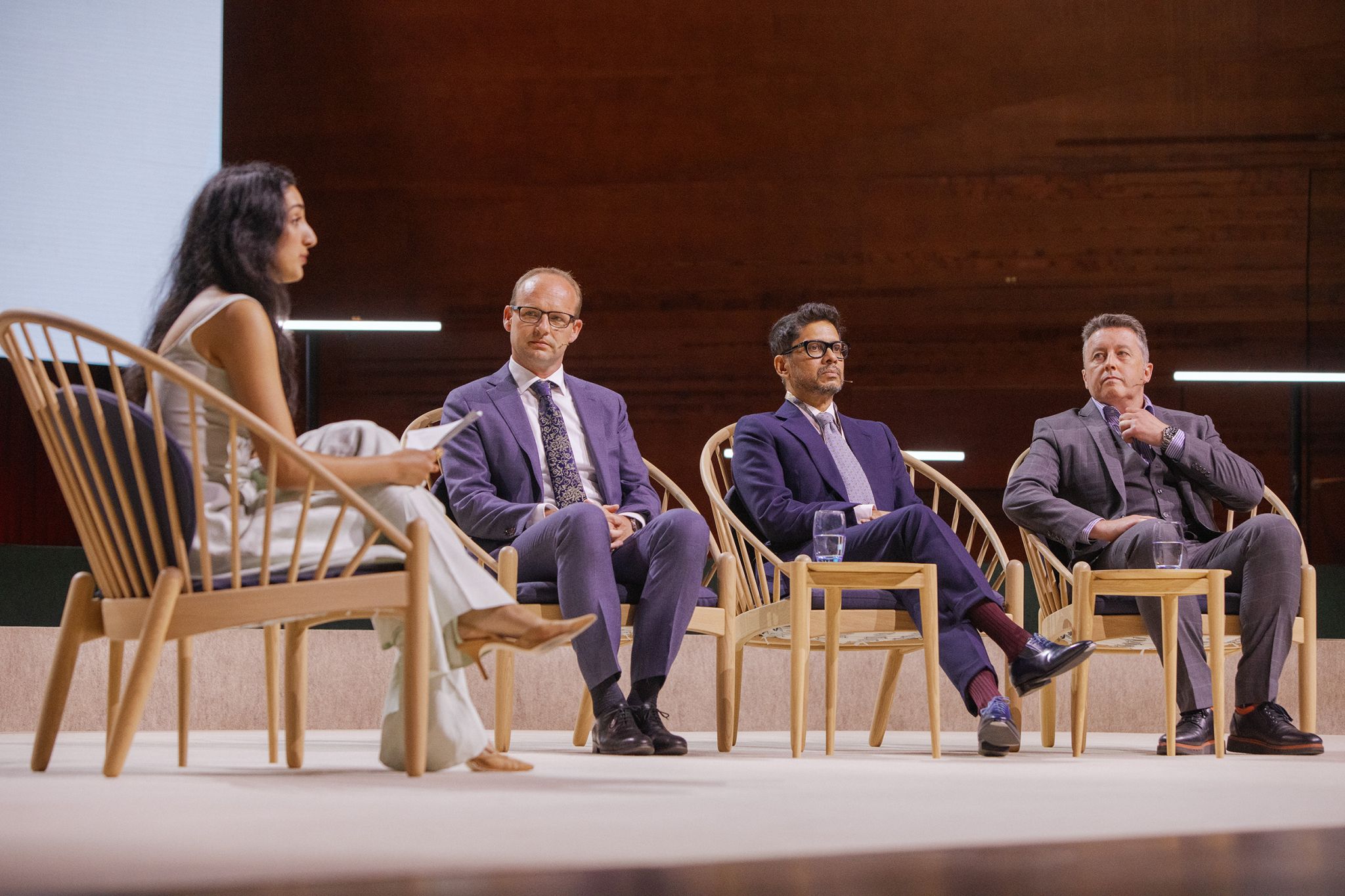
The Global Fashion Summit organised by the Global Fashion Agenda (GFA), was held from 27-28 June at the Copenhagen Concert Hall in Denmark.
The Global Fashion Summit organised by the Global Fashion Agenda (GFA), was held from 27-28 June at the Copenhagen Concert Hall in Denmark.
With the theme Ambition to Action the Global Fashion Summit: Copenhagen Edition 2023 focused on practical examples of sustainable action within the fashion industry. The panel The International Accord: What’s Next? explored the impact and way ahead for the International Accord as one of the leading examples of worker health and safety initiatives within the garment industry against the context of increasing global legislation on supply chain transparency.
The discussion emphasised the vital need for involving workers and local stakeholders while designing tailor made worker health and safety country programs and highlighted the role of the Accord in contributing to safer working conditions within the Bangladeshi garment industry.
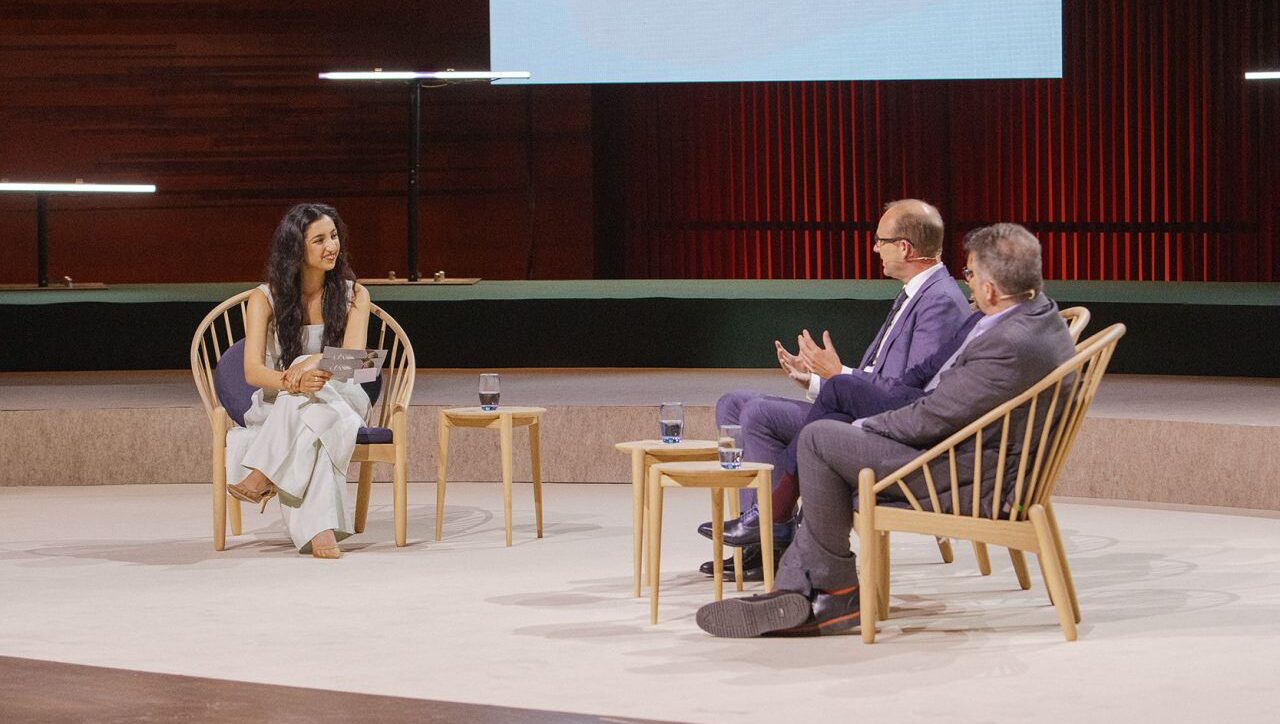
Moderated by Aditi Mayer, Visual Storyteller & Climate Activist, the session included insights from Miran Ali (米然·阿里), Managing Director, Bitopi Group, Michael Bride, Senior Vice President, Corporate Responsibility – Global Affairs, PVH Corp. and Joris Oldenziel, Executive Director, International Accord for Health and Safety in the Textile and Garment Industry.
Resources
Related updates
May 28, 2025
The International Accord’s All Signatory Meeting was dedicated to insights on the progress and operations of the Accord’s country program in Bangladesh and Pakistan, alongside exploring opportunities to expand the Accord’s scope and impact.
March 10, 2025
This briefing provides updates on the number of signatory brands and covered factories, the rollout of Workplace Programs, and recent events organised by the Pakistan Accord team.
February 19, 2025
The Pakistan Accord team recently organised a series of capacity building workshops for government officials in the Sindh and Punjab provinces.
May 28, 2025
The International Accord’s All Signatory Meeting was dedicated to insights on the progress and operations of the Accord’s country program in Bangladesh and Pakistan, alongside exploring opportunities to expand the Accord’s scope and impact.
February 19, 2025
The Pakistan Accord team recently organised a series of capacity building workshops for government officials in the Sindh and Punjab provinces.
November 28, 2024
On 26 and 27 November 2024 the Pakistan Accord conducted its inaugural safety training meeting in Pakistan. The meeting was attended by all employees of the factory.
A decade of workplace health and safety under the Accord
Statement
Amsterdam, 15 May 2023:
Ten years ago, on 15 May 2013, the Accord on Fire Building and Safety in Bangladesh (Bangladesh Accord) was signed by global clothing companies, UNI and IndustriALL global trade unions, and NGO witness signatories, just three weeks after the Rana Plaza building collapse. This landmark agreement was born out of an urgent need to address the prevalence of serious factory accidents in the textile and garment industry. Ten years on, the Accord Secretariat reflects on the progress on worker safety in the past decade and our vision for the future.
Efforts under the Accord have focused on improving fire and building safety standards and strengthening the capacity of workers and factories in Bangladesh to identify, raise and address a broad range of occupational health and safety issues. Suppliers in Bangladesh have made significant safety improvements at their factories, with support from more than 220 brand signatories who have invested over 70 million USD to finance the Accord programs and operations in Bangladesh.
The Accord, and the RMG Sustainability Council (RSC)since 2020, have conducted nearly 56,000 inspections across over 2,400 garment factories in Bangladesh. Out of the 170,000 health and safety issues identified during these inspections, 140,000 have been corrected through measures such as installation of fire doors, fire alarms, sprinkler systems, fixing faulty electrical systems, and strengthening building structures.
Recognising that safe workplaces cannot be ensured without worker participation, more than 1,200 joint labour-management Safety Committees at Accord-covered factories are now trained and equipped to address and monitor factory safety on a day-to-day basis.
Workers have filed over 6,000 complaints with the independent complaints mechanism which Accord signatories provide.The resolution of these complaints has involved improvements in health and safety at the factory, disciplinary actions against perpetrators, payment of full severance benefits, provision of maternity benefits, reduction of excessive working hours and reinstatements of workers.
“Since the Accord’s inception, its signatories and partners have contributed to the continuous and sustained remediation of health and safety risks at garment and textile factories in Bangladesh. Recognising that more remains to be done and against the backdrop of increasing human rights due diligence legislation, we look forward to a decade of greater collaboration with all relevant stakeholders to strengthen safety standards, support capacity building, and foster an environment of accountability and transparency in the textile and garment industry,” Joris Oldenziel, Executive Director, International Accord
Looking ahead, the Accord has a mission to encourage greater collaboration between different stakeholders, including brands, unions, manufacturers, governments, and civil society organisations for a safe and healthy garment and textile industry. We remain committed to building a safe and sustainable future for all workers in the garment and textile industry in Bangladesh and implementing the Pakistan Accord in close collaboration with the signatories and their local counterparts, the Pakistan government authorities and the garment and textile manufacturing industry.
On behalf of the Accord signatories,
The International Accord Secretariat
END
For more information, contact:
- media@internationalaccord.org
- Mini Dixit, Communications Officer: mini.dixit@internationalaccord.org
Related updates
May 28, 2025
The International Accord’s All Signatory Meeting was dedicated to insights on the progress and operations of the Accord’s country program in Bangladesh and Pakistan, alongside exploring opportunities to expand the Accord’s scope and impact.
March 10, 2025
This briefing provides updates on the number of signatory brands and covered factories, the rollout of Workplace Programs, and recent events organised by the Pakistan Accord team.
February 19, 2025
The Pakistan Accord team recently organised a series of capacity building workshops for government officials in the Sindh and Punjab provinces.
May 28, 2025
The International Accord’s All Signatory Meeting was dedicated to insights on the progress and operations of the Accord’s country program in Bangladesh and Pakistan, alongside exploring opportunities to expand the Accord’s scope and impact.
February 19, 2025
The Pakistan Accord team recently organised a series of capacity building workshops for government officials in the Sindh and Punjab provinces.
November 28, 2024
On 26 and 27 November 2024 the Pakistan Accord conducted its inaugural safety training meeting in Pakistan. The meeting was attended by all employees of the factory.
10 years since the Rana Plaza collapse in Bangladesh
Statement
Amsterdam, 24 April 2023:
April 24, 2023, marks 10 years since the tragic collapse of the Rana Plaza building in Bangladesh which killed 1,138 garment workers and injured 2,500 others. On this day, we remember those who perished, those who were injured, and those who continue living with the impacts of one of the worst workplace disasters in modern history.
The Rana Plaza collapse was an avoidable tragedy that could have been prevented with reasonable health and safety measures. A decade on, we wish to honour the memory of this tragedy’s victims by taking stock of how far workplace safety has come since Rana Plaza and acknowledging all that remains to be done.
The collective efforts of brands, manufacturers, trade unions, and civil society organisations with support from the local government have made significant strides in health and safety in the Bangladeshi textile and garment industry.
These efforts have included physical improvements like strengthening the structural integrity of factory buildings, the installation of fire doors, fire alarms, and enclosed staircases as well as addressing other occupational health and safety (OSH) issues like excessive working hours and gender-based violence and harassment through safety training at factories and a complaints mechanism for workers. Workers have been made aware of their right to refuse unsafe work and how to evacuate a building in case of a fire through Safety Committee training and all employee meetings in every factory.
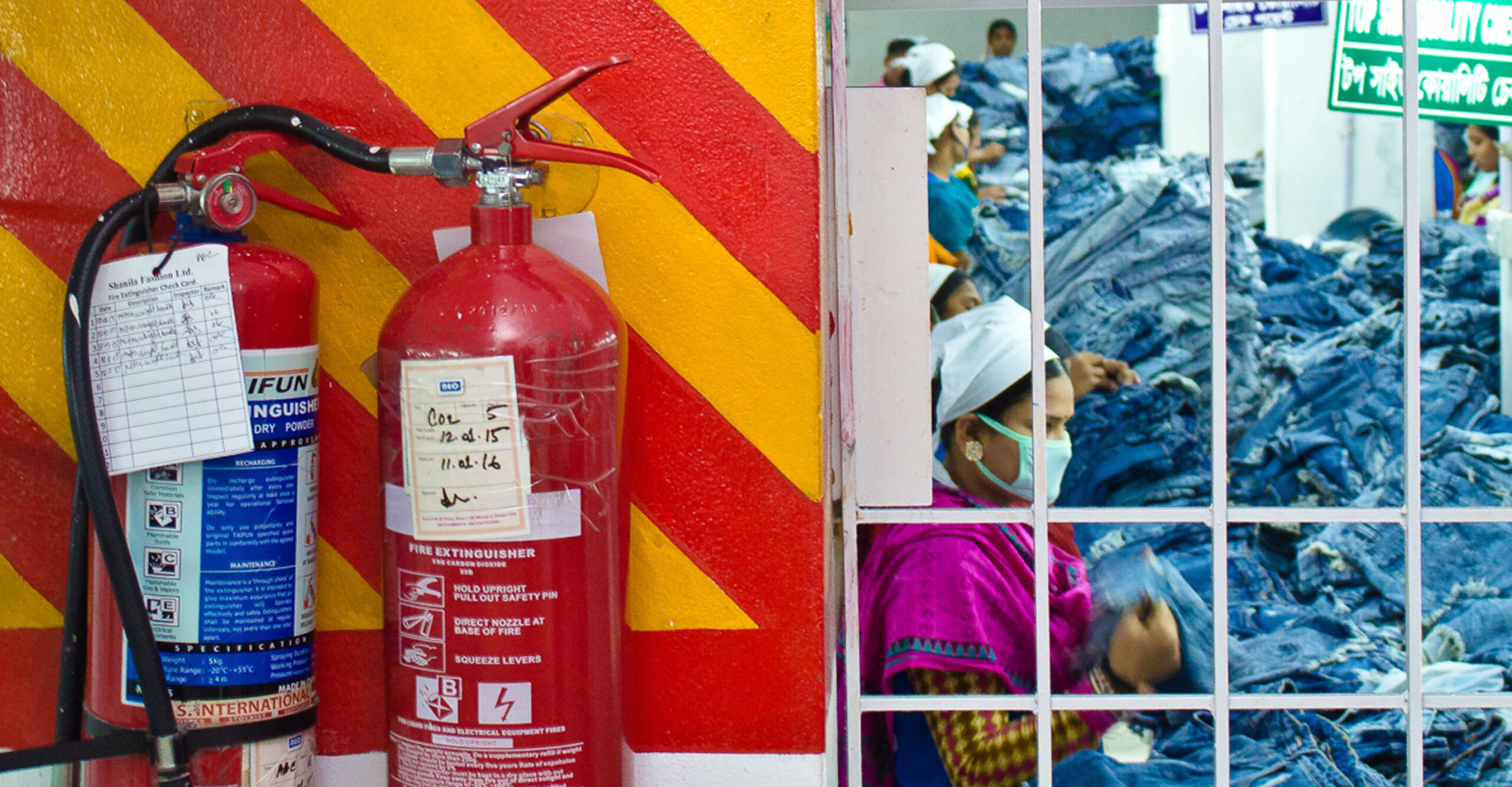
The Accord and RMG Sustainability Council (RSC), which carried forward Accord operations in Bangladesh since June 2020, have conducted nearly 56,000 fire, electrical, and building safety inspections at over 2,400 garment factories. Over 140,000 safety issues at these factories have been resolved, contributing to safer working conditions for workers.
While these efforts have borne tangible results in Bangladesh, the International Accord signatories have decided to extend these measures and learnings to Pakistan to ensure Pakistani textile and garment workers also have access to minimal health and safety measures including safe exits, fire alarm systems and workplaces with structural integrity.
“Together with our signatories and stakeholders, the Accord approaches the next decade with immense dedication and perseverance. We are determined to continue the health and safety work at factories in Bangladesh and contribute to a safer Pakistani textile and garment industry under the recently signed Pakistan Accord,” said Joris Oldenziel, Executive Director, International Accord.
On behalf of the Accord signatories,
International Accord Secretariat
END
For more information, contact:
- media@internationalaccord.org
- Mini Dixit, Communications Officer: mini.dixit@internationalaccord.org
Related updates
May 28, 2025
The International Accord’s All Signatory Meeting was dedicated to insights on the progress and operations of the Accord’s country program in Bangladesh and Pakistan, alongside exploring opportunities to expand the Accord’s scope and impact.
March 10, 2025
This briefing provides updates on the number of signatory brands and covered factories, the rollout of Workplace Programs, and recent events organised by the Pakistan Accord team.
February 19, 2025
The Pakistan Accord team recently organised a series of capacity building workshops for government officials in the Sindh and Punjab provinces.
May 28, 2025
The International Accord’s All Signatory Meeting was dedicated to insights on the progress and operations of the Accord’s country program in Bangladesh and Pakistan, alongside exploring opportunities to expand the Accord’s scope and impact.
February 19, 2025
The Pakistan Accord team recently organised a series of capacity building workshops for government officials in the Sindh and Punjab provinces.
November 28, 2024
On 26 and 27 November 2024 the Pakistan Accord conducted its inaugural safety training meeting in Pakistan. The meeting was attended by all employees of the factory.
International Accord at the 4th UN South Asia Forum on Business and Human Rights
Updates on programs in Bangladesh
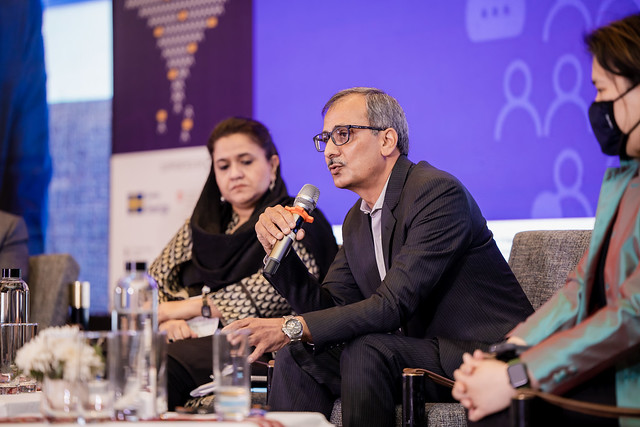
The International Accord participated in the 4th UN South Asia Forum on Business and Human Rights organised by UNDP Business and Human Rights Asia from 20-22 March 2023 in Kathmandu, Nepal.
The International Accord participated in the 4th UN South Asia Forum on Business and Human Rights organised by UNDP Business and Human Rights Asia from 20-22 March 2023 in Kathmandu, Nepal.
The forum brought together key stakeholders including governments, trade unions, civil society, businesses, UN agencies, and development partners that discussed over a dozen topics relevant to the United Nations Guiding Principles on Business and Human Rights (UNGPs) during the three-day deliberations.
International Accord participated in the plenary From Tragedy to Progress: Lessons from the Rana Plaza Building Collapse that analyzed the progress and highlighted the continued need to prioritize worker safety in the textile and garment industry. The session was moderated by Prof Pichamon Yeophantong, Chair of the UN Working Group on Business and Human Rights, and included insights from Shamim Ehsan (BKMEA), Mahruna Islam (UNDP) Kalpona Akter, Bangladesh Center for Workers’ Solidarity, and Zulfiqar Shah, Pakistan Consultant, International Accord.
- The contributions of the Accord in building a safer Bangladeshi garment industry.
- The importance of awareness, trust, and collaboration in ensuring human rights in business.
- The crucial role of stakeholder engagement, particularly the participation of local industry and government, in any new Accord country programs.
- The opportunities in replicating the Accord model in other major garment-producing countries.
- The benefits of legally binding agreements in ensuring transparency and accountability in garment supply chains.
Resources
Related updates
May 28, 2025
The International Accord’s All Signatory Meeting was dedicated to insights on the progress and operations of the Accord’s country program in Bangladesh and Pakistan, alongside exploring opportunities to expand the Accord’s scope and impact.
March 10, 2025
This briefing provides updates on the number of signatory brands and covered factories, the rollout of Workplace Programs, and recent events organised by the Pakistan Accord team.
February 19, 2025
The Pakistan Accord team recently organised a series of capacity building workshops for government officials in the Sindh and Punjab provinces.
May 28, 2025
The International Accord’s All Signatory Meeting was dedicated to insights on the progress and operations of the Accord’s country program in Bangladesh and Pakistan, alongside exploring opportunities to expand the Accord’s scope and impact.
February 19, 2025
The Pakistan Accord team recently organised a series of capacity building workshops for government officials in the Sindh and Punjab provinces.
November 28, 2024
On 26 and 27 November 2024 the Pakistan Accord conducted its inaugural safety training meeting in Pakistan. The meeting was attended by all employees of the factory.



